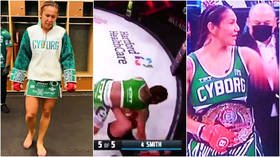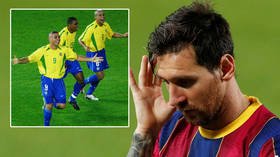Euro 2020: Russia hoping for heroics but with a team in search of spark
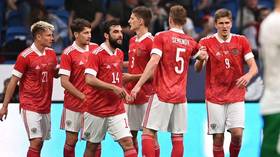
As Russia’s players did a lap of honour at Lev Yashin Stadium in Moscow on Saturday, taking in applause after their victory against Bulgaria, attention was already turning to much bigger challenges looming on the horizon.
An 84th-minute penalty from Aleksandr Sobolev was enough to ensure Russia head into Euro 2020 with a win and a modicum of momentum, but recent form and lingering doubts over personnel and tactics mean any overt optimism that the team can do something special this summer is in short supply.
“I have mixed emotions,” one Russia fan, Alexey, told RT Sport after the game. “The best thing about today was the crowd. The game wasn’t particularly interesting in attacking terms. But that was to be expected, it was a friendly.”
“It was a bit of a dull game,” added another fan, Daria. “I wanted Russia to create more chances. In general, not bad, but of course we want more. Bulgaria’s a pretty basic team.”
Victory against the unambitious Bulgarians followed a friendly draw against Poland – minus Robert Lewandowski – in Wroclaw last Tuesday.
Next up for Stanislav Cherchesov’s team is their Euro 2020 opener against Belgium in St. Petersburg on Saturday, one of two Group B matches Russia will play on home territory at the pan-continental tournament.
'Not just long balls and set-pieces'
Three years ago at their last major competition, Russia famously surprised everyone – including perhaps themselves – with their run to the World Cup quarter-finals in a heady summer on home soil.
This time around, some fans are harboring dreams of a repeat, but it’s hard to sense any genuine expectation.
“Of course they can [repeat what they did in 2018]. We believe in the team, but I hope the manager picks the right players and the right system,” said Russia supporter Daria.
“If he selects players who are fully fit and ready, we’ll see some good performances and the same festival of football we saw at the World Cup.
“But I think Cherchesov needs to change the system, play more open and expansive football, create more chances, not just long balls and set-pieces.”
Fellow fan Aleksandr added: “I hope we can repeat what we did at the World Cup, but we’ve got a difficult group [at Euro 2020]. It will be tough, but I think we can make it out of the group at least.”
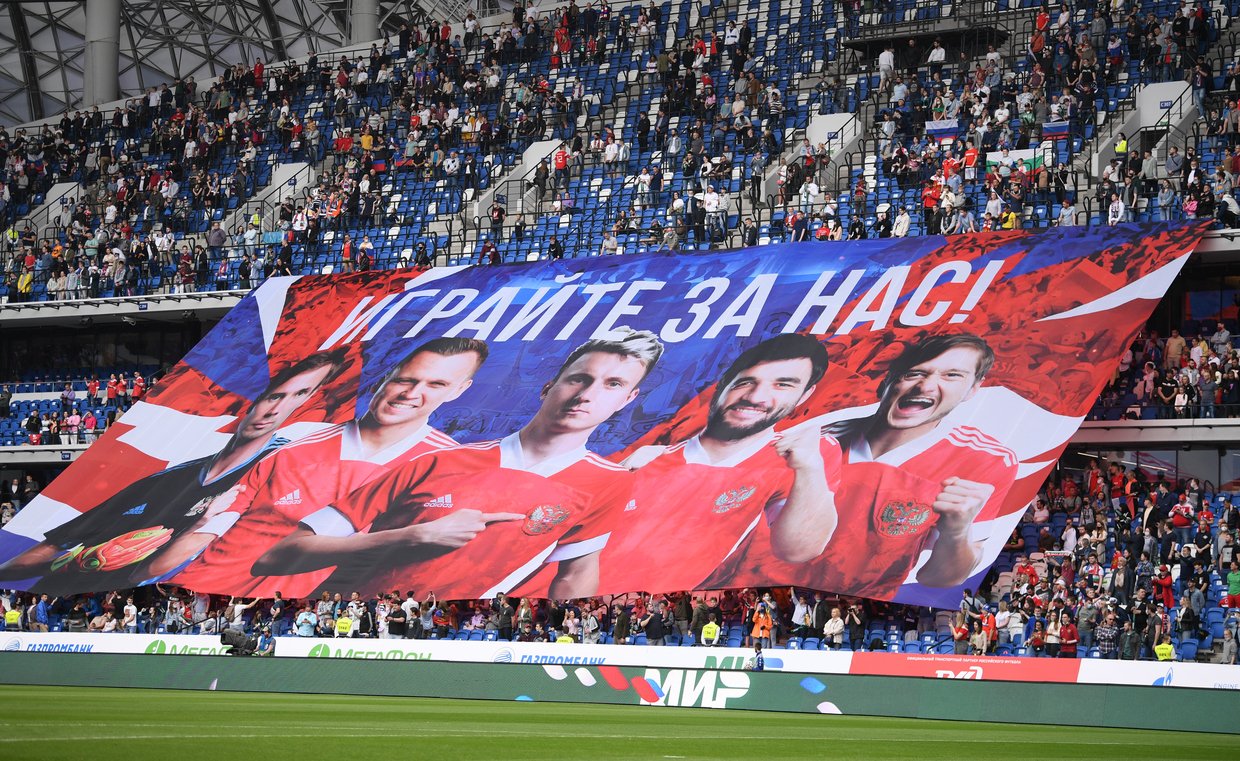
Saturday’s showing was a useful summation of where this Russia team finds itself before the serious business begins this weekend at a tournament postponed by a year because of the pandemic.
Functional but without an awful lot of flair, it took the late spot-kick from substitute Sobolev to break down a tame Bulgaria team who had won just two of their last 26 matches. Russia created half-chances and had a goal ruled out in the first half, but for much of the game it was plodding and predictable.
The Devils you know
Belgium – the number one-ranked team in the world and among the favorites for Euro 2020 – will be an entirely different proposition, even if the Red Devils are likely to be without influential playmaker Kevin De Bruyne when the teams meet in St. Petersburg.
The two sides are familiar with each other, having come through the same qualifying group for Euro 2020. Russia suffered defeat home and away to Roberto Martinez’s men, but outside of those games it was relatively routine as Russia picked up eight wins from eight to qualify in second.
The losses to Belgium aside, that campaign formed part of a groundswell of goodwill that Russia enjoyed after their World Cup heroics. ‘Sbornaya’ hit 33 goals in 10 qualifiers, conceding eight in return (seven of which came in the two games with Belgium), and the sense was that while not a truly top-level team, this was at least a group of players with confidence and restored national pride.
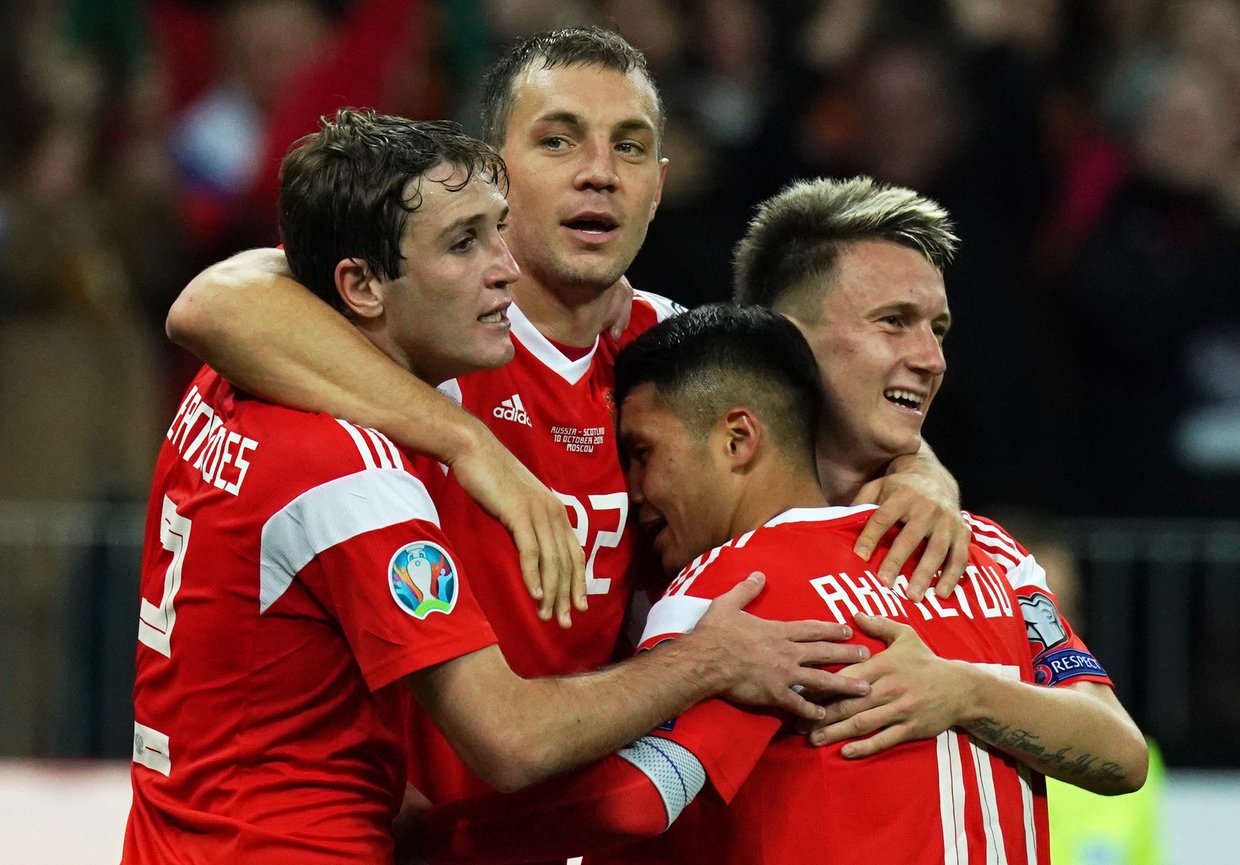
More recently though, it has been a story of regression for Russia. Last year’s UEFA Nations League campaign saw Russia pick up two wins in six games and was capped by the nadir of a 5-0 hammering away in Serbia. World Cup qualifying earlier this year began with wins against Malta and Slovenia, but then brought defeat against Slovakia. Including the victory against Bulgaria, Russia have won three, drawn four and lost four of their last 11 outings.
That means that heading into Euro 2020, Cherchesov faces similar concerns – albeit on a smaller scale – to the ones he was forced to contend with before the World Cup. Back then, Russia were on a woeful run of seven matches without a win and beset with question marks over the style and personnel deployed by the manager.
Is Stani still the man?
In the end, Cherchesov was vindicated by Russia’s run, but even after that questions have lingered over whether he is the right man to lead Russia forward and integrate a new generation of talent.
A stubborn and combative character, the 57-year-old was involved in a particularly ugly spat with CSKA Moscow earlier this season over comments made on a TV show about young forward Fedor Chalov and his shortcomings compared to journeyman striker Anton Zabolotny.
CSKA responded by issuing a public rebuke intimating that Cherchesov is viewed as little more than a glorified PE teacher, and in broader terms the row crystalized the notion that this is a coach stuck in his ways, reluctant to nurture some of the younger talent the nation has at its disposal.
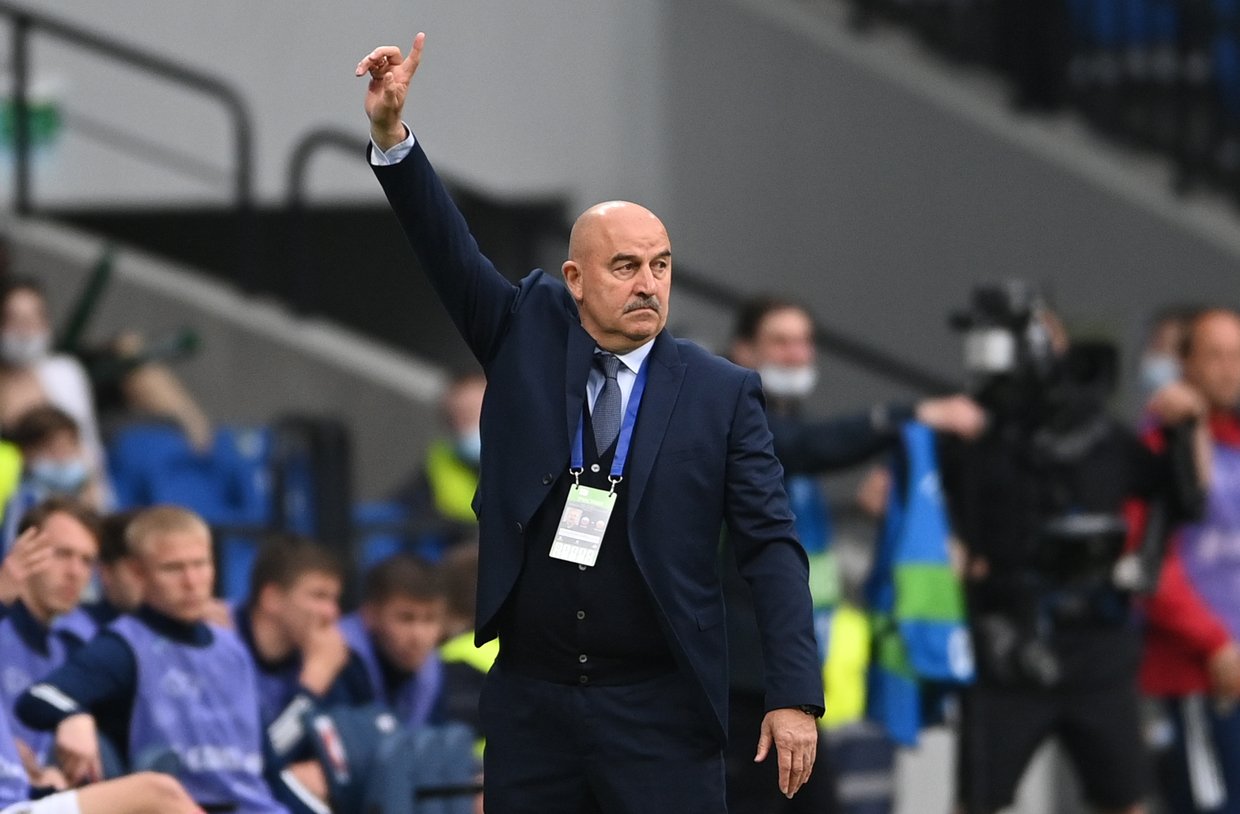
In tactical terms, Cherchesov continues to leave himself open to criticism. He isn’t against tinkering with his formations, but only within an overarching dogma of pragmatism that leaves some fans craving more adventure and ambition.
Three of a kind up front
Arriving at Euro 2020, the attacking fulcrum of this Russia team remains its captain, Artem Dzyuba. Having returned from exile to become a World Cup hero, the big Zenit St. Petersburg forward basked in ‘Dzyubamania’ after that tournament, only to make national headlines for all the wrong reasons when a lewd video was leaked at the end of last year.
The scandal was such that even Vladimir Putin was quizzed on it at an annual press conference, but after a brief hiatus from the national team Dzyuba was recalled and reinstated as skipper. He could break the record as Russia’s all-time top scorer this summer, standing just one goal behind Aleksandr Kerzhakov’s record tally of 30 international strikes.
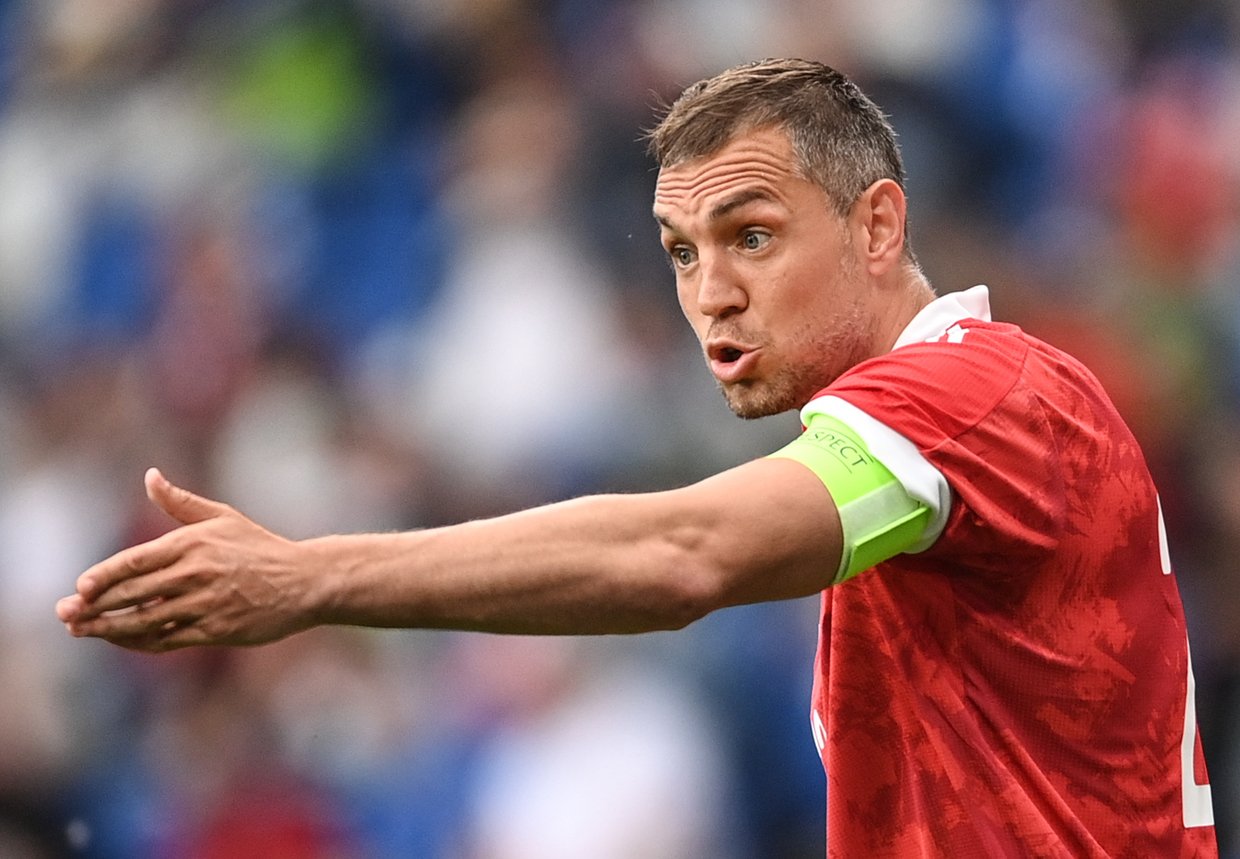
The two other designated forwards named by Cherchesov in his squad for Euro 2020 – Spartak Moscow’s Sobolev, 24, and CSKA's Zabolotny, 29 – are very much in the Dzyuba mould: big target men who will be a danger at set-pieces and crosses into the box, and a foil for teammates running off them in open play. Options who might have offered something different to the mix, most notably Lokomotiv Moscow forward Fedor Smolov, who has rediscovered some form this season, have been overlooked.
Behind Dzyuba lie the dual sources of creativity in the team. Aleksandr Golovin enjoyed a decent end to the season at Monaco after returning from injury and will be an important player if Russia are to achieve anything significant; Alexey Miranchuk, who plays a similar supporting role in attack, has been frustrated by a lack of game time since moving from Lokomotiv Moscow to Atalanta, but likewise brings flair to his country.
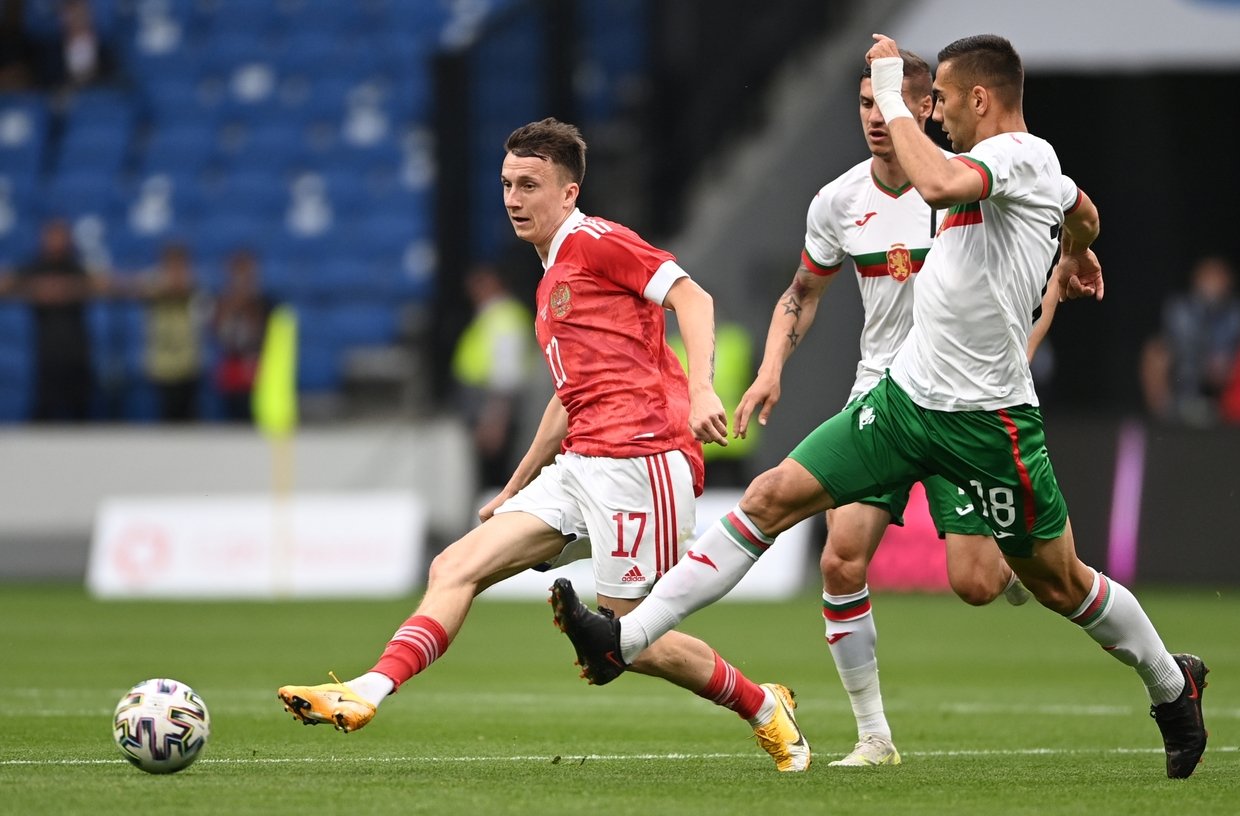
The main industry in midfield is provided by Roman Zobnin of Spartak Moscow, and he will be expected to start alongside Zenit’s Magomed Ozdoev – a reliable performer and trusted by Cherchesov.
The Curious Case of Yuri Zhirkov
On the right flank, Mario Fernandes – the Brazilian-born wingback who is a CSKA Moscow cult hero – is sure to start, assuming he can recover fully from injury.
Vyacheslav Karavaev, nominally a right-sided player but who can do a job on the left, seems to be Russia’s best option on the opposite flank, although Cherchesov used Yuri Zhirkov against Bulgaria and later suggested – to the bemusement of many – that the 37-year-old veteran was ready to feature in all three group games, despite playing just 79 minutes of Russian Premier League football since the turn of the year.
"He should be on his pension," came one amusing comment from the crowd on Saturday, but Cherchesov clearly has other ideas.
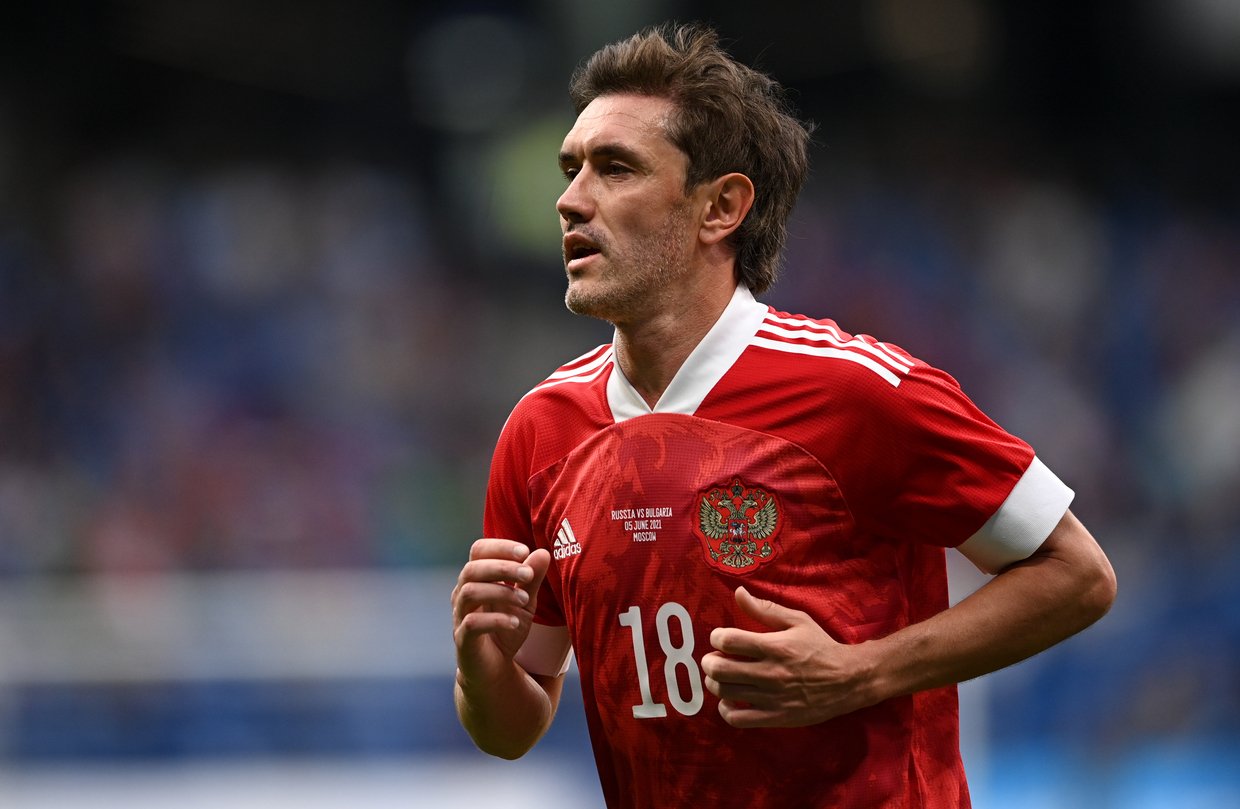
Defensive woes
The biggest headache for Russia is in defence. Following Igor Akinfeev’s retirement from international football after the World Cup, Cherchesov settled on Lokomotiv goalkeeper Guilherme – another Brazilian-born arrival – as his heir apparent. Never entirely convincing, Guilherme was cut after the 5-0 rout against Serbia and hasn’t been seen in the squad since. Instead, Dynamo Moscow goalkeeper Anton Shunin, 32, is likely to get the nod to start against Belgium.
In front of him, Spartak Moscow captain Georgy Dzhikiya has established himself as an integral part of the post-World Cup set-up but is surrounded by fallibility in a back-three system Cherchesov appears to be leaning towards.
Fedor Kudryashov – another Cherchesov stalwart with whom fans are far less enamored – was forced out of the Bulgaria game in the warm-up and is now a doubt for the opening group match and possibly the entire tournament. Midfielder Dmitry Barinov filled in at centre-back on Saturday before departing with a minor injury, but should be fit and might step in against Belgium.
Andrey Semenov of Akhmat Grozny is another man rated by Cherchesov and seems likely to start the Euro 2020 campaign, but also has question marks over his ability at international level.
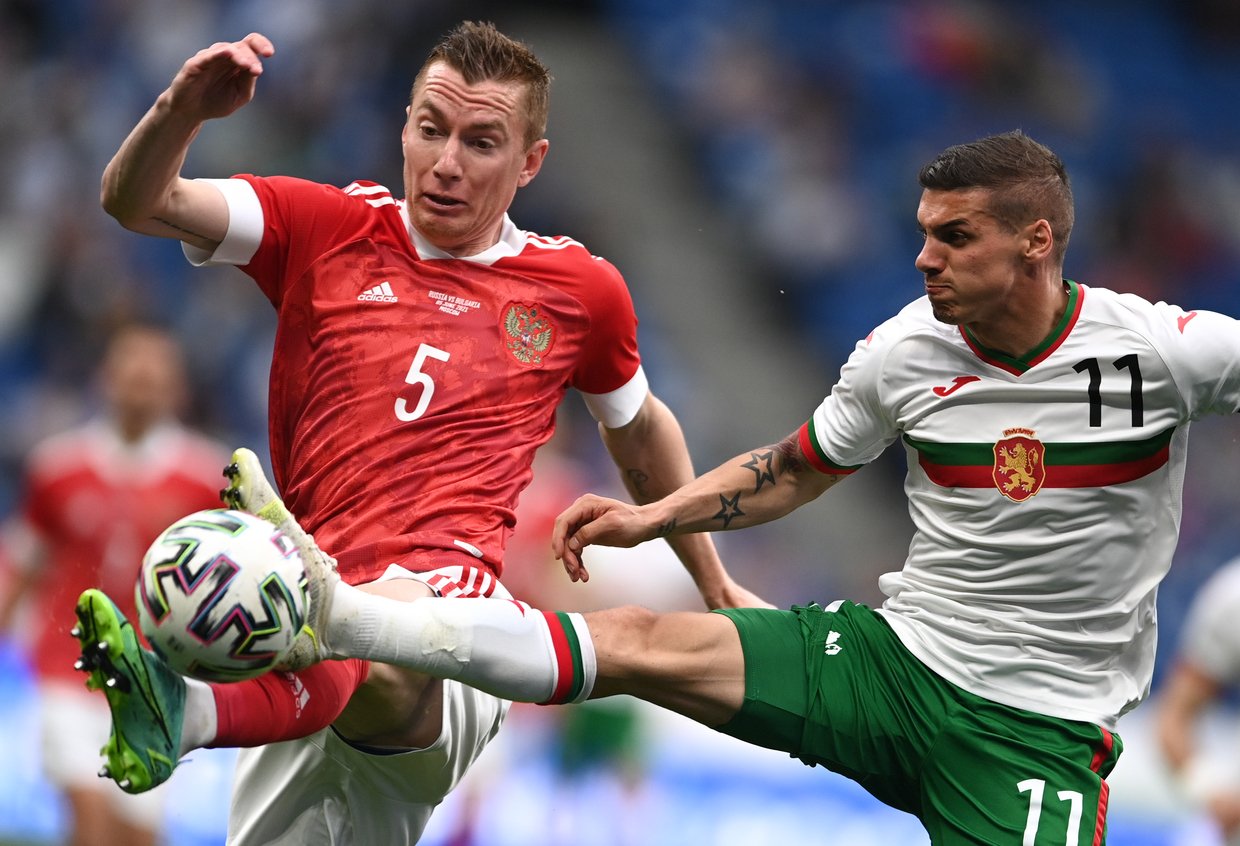
Bright young things
From the bench, Zenit winger Andrey Mostovoy, 23, impressed in a cameo against Bulgaria and is one name fans will want to see more of. Likewise for Maksim Mukhin, a 19-year-old with a composed touch in central midfield, and who recently joined CSKA from crosstown rivals Lokomotiv. Denis Makarov, a 23-year-old attacking midfielder at Rubin Kazan, is another one to watch.
“Cherchesov has shown the kind of organized football that we didn’t see before,” said Russia fan Pavel after the game against Bulgaria, sounding a note of optimism.
“I hope new players will emerge. Mostovoy was good today, Sobolev as well. I hope they’ll be able to produce results.”
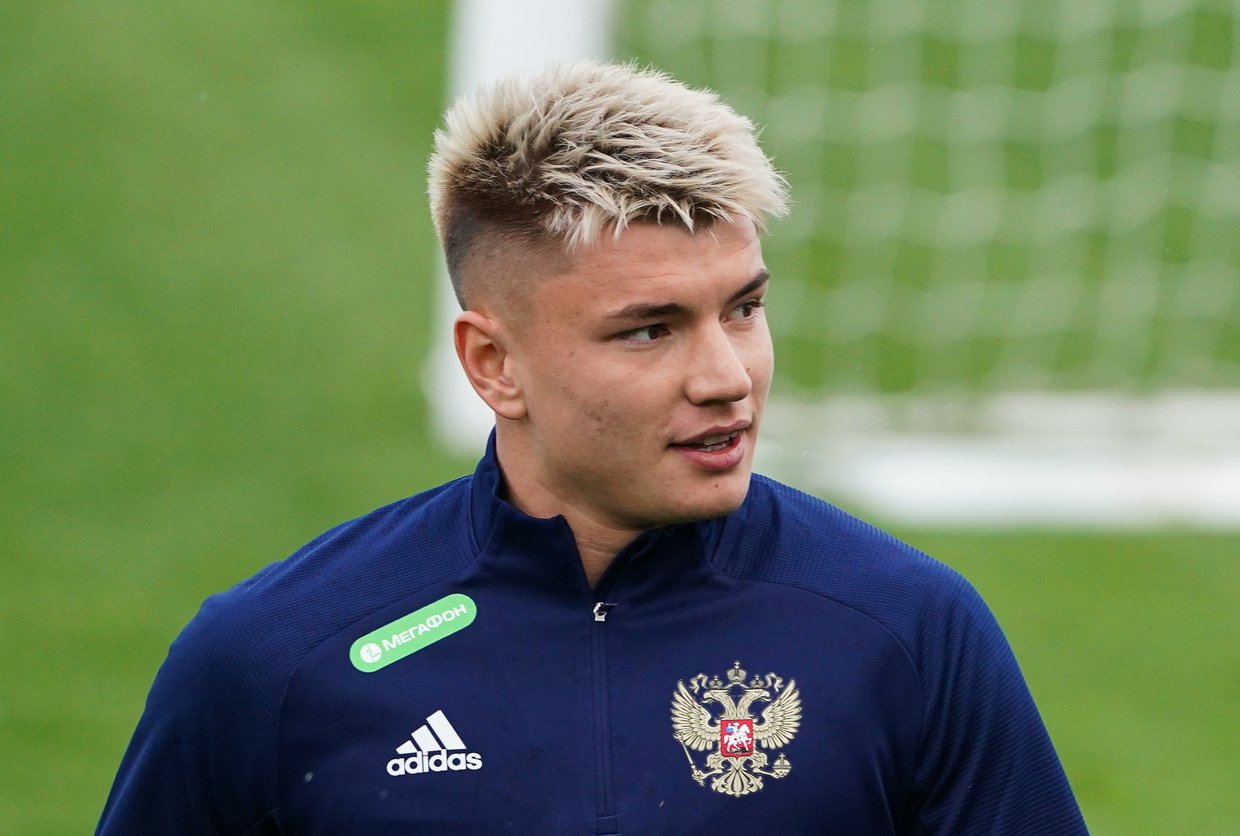
No Saudi stroll to kick things off
Three years ago at the World Cup, Russia were handed a fortuitous opening assignment against an accommodating Saudi Arabia. The 5-0 hammering the hosts dished out banished the nerves, kick-starting a campaign from Russia that contributed to making the tournament the overwhelming success it was.
This time it’s Belgium who await first on June 12, followed by a meeting on June 16 with a Finland team making their first ever appearance at a major finals, and then a tricky assignment against Denmark in Copenhagen on June 21.
The less demanding Euro 2020 format means that the top two from each group qualify automatically for the last 16, with the four best third-placed teams also progressing to the knockout stages.
That offers more margin for error, but Russia will see victory against Finland as a bare minimum and will want to take at least a point against the Danes, seen as their most likely challengers for second spot behind Belgium.
Unlike many of his peers across the continent, Cherchesov has had the advantage of working with the majority of his team for three weeks leading up to the tournament, after the Russian Premier League season ended in mid-May.
Just as he did before the World Cup, Cherchesov used the time to take the team on a grueling training camp in the mountainous setting of Neustift in Austria, which last time worked wonders for Russia’s fitness.
📸 Кадр дня. Семейное фото. #НашиПарни#СборнаяРоссииpic.twitter.com/jWaWy515GK
— Сборная России (@TeamRussia) May 28, 2021
That camp forms part of the parallels with the World Cup build-up that can be drawn ahead of this summer’s tournament, along with lingering doubts about the team and the manager – but also the hope that once things do get underway, those fears will be dispelled and Russia can once again spring a shock.
By Liam Tyler


